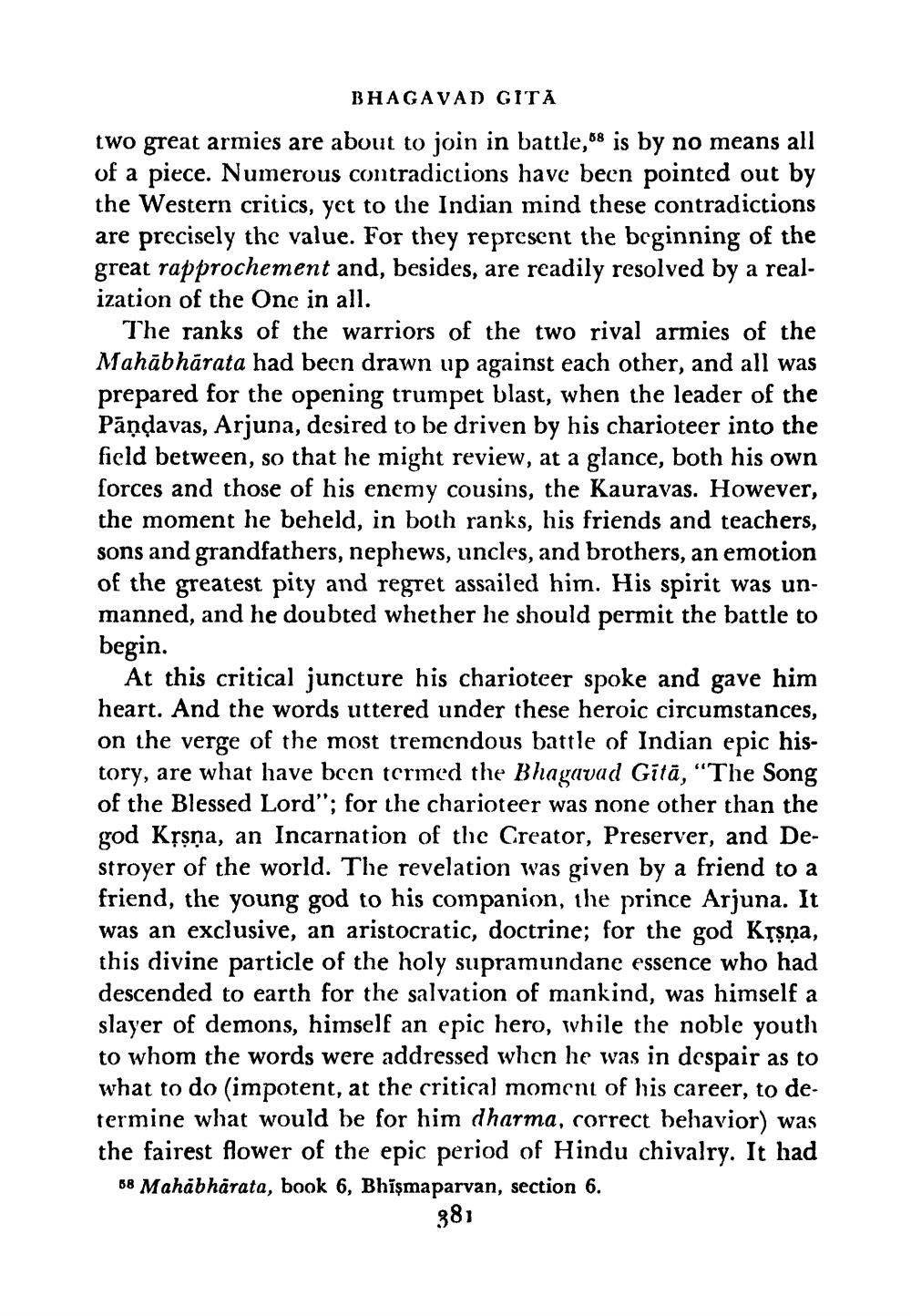________________
BHAGAVAD GITA two great armies are about to join in battle, 68 is by no means all of a piece. Numerous contradictions have been pointed out by the Western critics, yet to the Indian mind these contradictions are precisely the value. For they represent the beginning of the great rapprochement and, besides, are readily resolved by a realization of the One in all.
The ranks of the warriors of the two rival armies of the Mahābhārata had been drawn up against each other, and all was prepared for the opening trumpet blast, when the leader of the Pāņdavas, Arjuna, desired to be driven by his charioteer into the field between, so that he might review, at a glance, both his own forces and those of his enemy cousins, the Kauravas. However, the moment he beheld, in both ranks, his friends and teachers, sons and grandfathers, nephews, uncles, and brothers, an emotion of the greatest pity and regret assailed him. His spirit was unmanned, and he doubted whether he should permit the battle to begin.
At this critical juncture his charioteer spoke and gave him heart. And the words uttered under these heroic circumstances, on the verge of the most tremendous battle of Indian epic history, are what have been termed the Bhagavad Gitä, “The Song of the Blessed Lord"; for the charioteer was none other than the god Kệsņa, an Incarnation of the Creator, Preserver, and Destroyer of the world. The revelation was given by a friend to a friend, the young god to his companion, the prince Arjuna. It was an exclusive, an aristocratic, doctrine; for the god Krşņa, this divine particle of the holy supramundane essence who had descended to earth for the salvation of mankind, was himself a slayer of demons, himself an epic hero, while the noble youth to whom the words were addressed when he was in despair as to what to do (impotent, at the critical moment of his career, to determine what would be for him dharma, correct behavior) was the fairest flower of the epic period of Hindu chivalry. It had
68 Mahabharata, book 6, Bhişmaparvan, section 6.
38)




